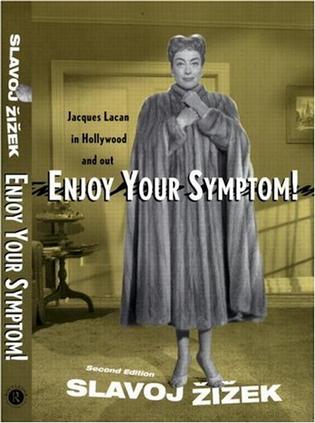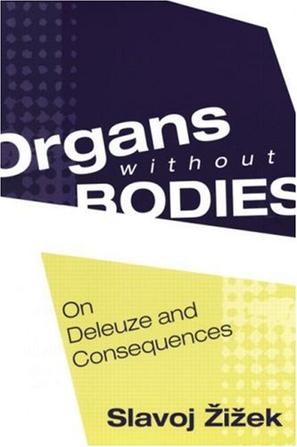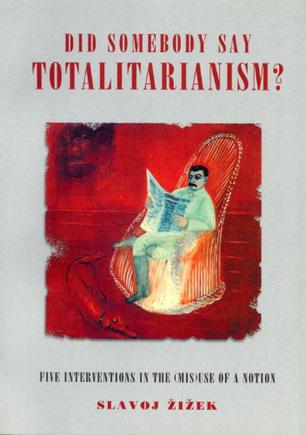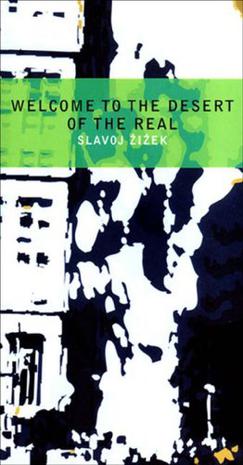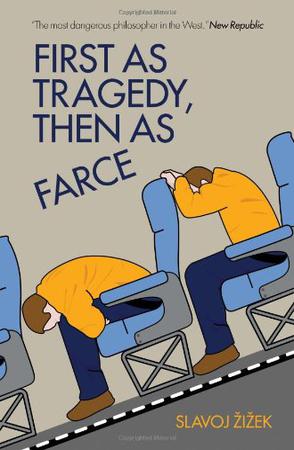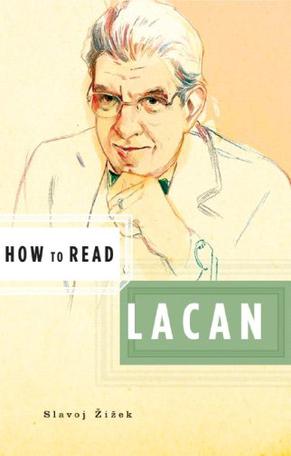欢迎来到相识电子书!
标签:Zizek
-
The Plague of Fantasies (Second Edition) (The Essential Zizek)
Modern audiovisual media have spawned a 'plague of fantasies', electronically inspired phantasms that cloud the ability to reason and prevent a true understanding of a world increasingly dominated by abstractions--whether those of digital technology or the speculative market. Into this arena, enters Zizek: equipped with an agile wit and the skills of a prodigious scholar, he confidently ranges among a dazzling array of cultural references--explicating Robert Schumann as deftly as he does John Carpenter--to demonstrate how the modern condition blinds us to the ideological basis of our lives. -
Enjoy Your Symptom!
Slavoj Zizek, dubbed by the Village Voice "the giant of Ljubljana," is back with a new edition of his seriously entertaining book on film, psychoanalysis (and life). His inimitable blend of philosophical and social theory, Lacanian analysis, and outrageous humor are made to show how Hollywood movies can explain psychoanalysis-and vice versa using films such as Marnie and The Man Who Knew Too Much. -
Organs without Bodies
The latest book by the Slovenian critic Slavoj Zizek takes the work of French philosopher Gilles Deleuze as the beginning of a dazzling inquiry into the realms of radical politics, philosophy, film (Hitchcock, Fight Club), and psychoanalysis. Of Organs without Bodies Joan Copjec (Imagine There's No Woman) has written: "With all his ususal humor and invention, Zizek -- the acknowledged master of the 180 degree turn -- here takes a trip into "enemy" territory to deliver Deleuze of a marvelously rebellious child, one that seriously challenges Deleuze's other progeny with a surprising but convincing bid for succession. Those who thought Deleuze's forward march into the future would follow a straight path are forced to rethink their stance. From now on all readings of Deleuze will have to take a detour through this important -- even necessary -- book." Eric Santner (On the Psychopathology of Everyday Life) describes Organs without Bodies as offering "an entirely new degree of conceptual clarity and political urgency. Through his deep engagement with the logic of Deleuze's project, Zizek opens up new possibilities of thought beyond the terms of the current political debates on globalization, democratization, war on terror. Once again, Zizek has produced an utterly timely and radically untimely meditation." Recently profiled in The New Yorker, and hailed by the Village Voice as "the giant of Ljubljana," Zizek is one of the most provocative and entertaining thinkers at work today. -
First As Tragedy, Then As Farce
In this bravura analysis of the current global crisis - following on from his bestselling "Welcome to the Desert of the Real" - Slavoj Zizek argues that the liberal idea of the end of history, declared by Francis Fukuyama during the 1990s, has had to die twice. After the collapse of the liberal-democratic political utopia, on the morning of 9/11, came the collapse of the economic utopia of global market capitalism at the end of 2008. Marx argued that history repeats itself-occurring first as tragedy, the second time as farce - and Zizek, following Herbert Marcuse, notes here that the repetition as farce can be even more terrifying than the original tragedy. The financial meltdown signals that the fantasy of globalization is over and as millions are put out of work it has become impossible to ignore the irrationality of global capitalism. Just a few months before the crash, the world's priorities seemed to be global warming, AIDS, and access to medicine, food and water- tasks labelled as urgent, but with any real action repeatedly postponed. Now, after the financial implosion, the urgent need to act seems to have become unconditional - with the result that undreamt of quantities of cash were immediately found and then poured into the financial sector without any regard for the old priorities. Do we need further proof, Zizek asks, that Capital is the Real of our lives: the Real whose demands are more absolute than even the most pressing problems of our natural and social world? -
The Sublime Object of Ideology
Slavoj Zizek, the maverick philosopher, author of over 30 books, acclaimed as the "Elvis of cultural theory," and today's most controversial public intellectual. His work traverses the fields of philosophy, psychoanalysis, theology, history and political theory, taking in film, popular culture, literature and jokes all to provide acute analyses of the complexities of contemporary ideology as well as a serious and sophisticated philosophy. His recent films The Pervert's Guide to the Cinema and Zizek! reveal a theorist at the peak of his powers and a skilled communicator. Now Verso is making his classic titles, each of which stand as a core of his ever-expanding life's work, available as new editions. Each is beautifully re-packaged, including new introductions from Zizek himself. Simply put, they are the essential texts for understanding Zizek's thought and thus cornerstones of contemporary philosophy. -
How to Read Lacan
The How to Read series provides a context and an explanation that will facilitate and enrich your understanding of texts vital to the canon. These books use excerpts from the major texts to explain essential topics, such as Jacques Lacan's core ideas about enjoyment, which re-created our concept of psychoanalysis. Lacan s motto of the ethics of psychoanalysis involves a profound paradox. Traditionally, psychoanalysis was expected to allow the patient to overcome the obstacles which prevented access to "normal" sexual enjoyment; today, however, we are bombarded by different versions of the injunction "Enjoy!" Psychoanalysis is the only discourse in which you are allowed not to enjoy. Slavoj i ek s passionate defense of Lacan reasserts Lacan s ethical urgency. For Lacan, psychoanalysis is a procedure of reading and each chapter reads a passage from Lacan as a tool to interpret another text from philosophy, art or popular ideology. -
Zizek's Jokes
“A serious and good philosophical work could be written consisting entirely of jokes.”—Ludwig Wittgenstein The good news is that this book offers an entertaining but enlightening compilation of Žižekisms. Unlike any other book by Slavoj Žižek, this compact arrangement of jokes culled from his writings provides an index to certain philosophical, political, and sexual themes that preoccupy him. Žižek’s Jokes contains the set-ups and punch lines—as well as the offenses and insults—that Žižek is famous for, all in less than 200 pages. So what’s the bad news? There is no bad news. There’s just the inimitable Slavoj Žižek, disguised as an impossibly erudite, politically incorrect uncle, beginning a sentence, “There is an old Jewish joke, loved by Derrida . . .“ For Žižek, jokes are amusing stories that offer a shortcut to philosophical insight. He illustrates the logic of the Hegelian triad, for example, with three variations of the “Not tonight, dear, I have a headache” classic: first the wife claims a migraine; then the husband does; then the wife exclaims, “Darling, I have a terrible migraine, so let’s have some sex to refresh me!” A punch line about a beer bottle provides a Lacanian lesson about one signifier. And a “truly obscene” version of the famous “aristocrats” joke has the family offering a short course in Hegelian thought rather than a display of unspeakables. Žižek’s Jokes contains every joke cited, paraphrased, or narrated in Žižek’s work in English (including some in unpublished manuscripts), including different versions of the same joke that make different points in different contexts. The larger point being that comedy is central to Žižek’s seriousness.
热门标签
下载排行榜
- 1 梦的解析:最佳译本
- 2 李鸿章全传
- 3 淡定的智慧
- 4 心理操控术
- 5 哈佛口才课
- 6 俗世奇人
- 7 日瓦戈医生
- 8 笑死你的逻辑学
- 9 历史老师没教过的历史
- 10 1分钟和陌生人成为朋友


